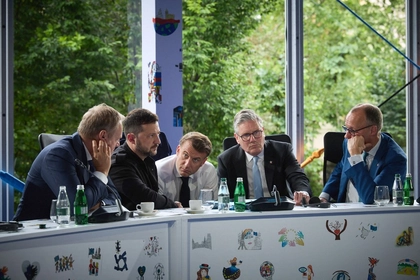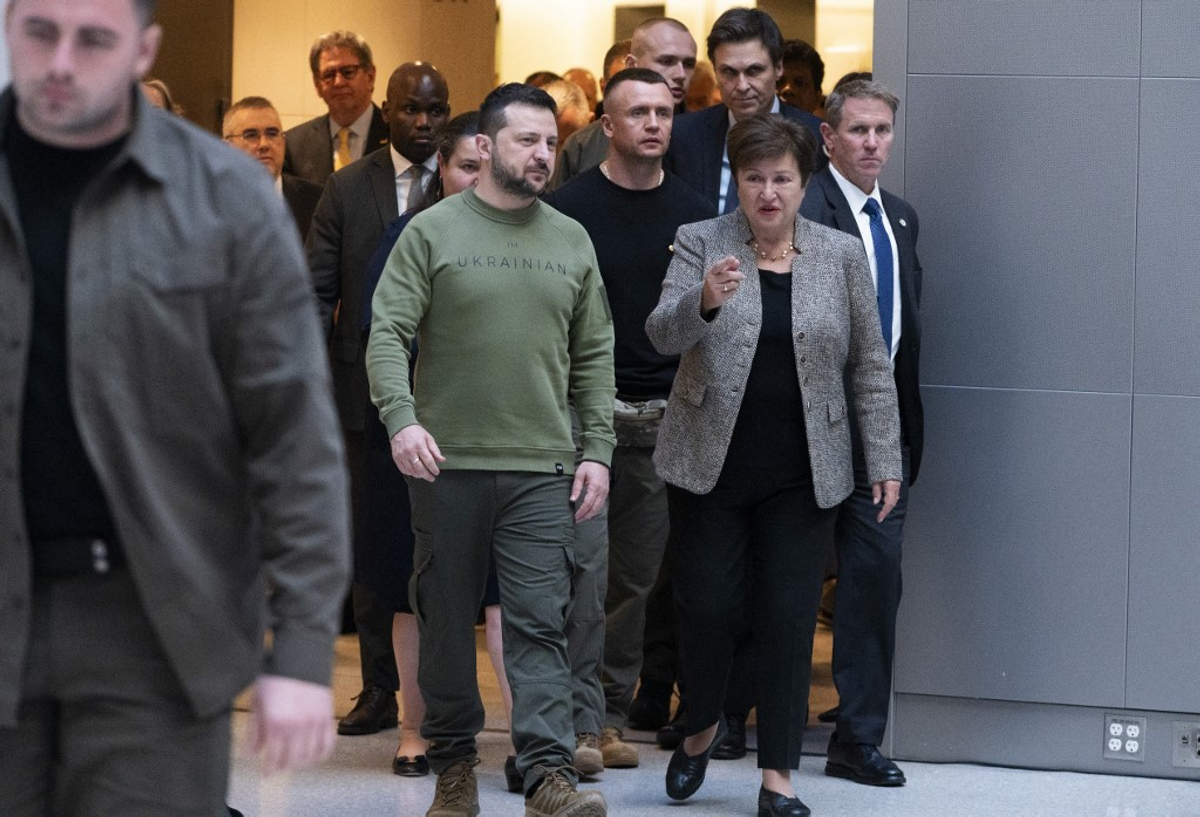Facing a multibillion-dollar funding shortfall as Russia’s war drags on beyond forecasts, President Volodymyr Zelensky said Friday he spoke with IMF Managing Director Kristalina Georgieva about a new financial assistance program to cover Ukraine’s soaring defense and social costs.
In 2026 alone, Ukraine’s financial gap for social expenditures linked to increased defense needs is estimated at $10-19 billion. Economists from the EU and IMF warn that Russia’s continued strikes on civilians suggest the war will extend well beyond the 2025 end date assumed in current financial planning, leaving Kyiv without enough funding to cover essential costs.
Follow our coverage of the war on the @Kyivpost_official.
With no new US funding commitments for the coming years, Ukraine is turning to other partners. Current macrofinancial programs – including the IMF package, the Ukraine Facility, and the ERA loan backed by frozen Russian assets – will soon expire, raising uncertainty over how Kyiv will bridge the gap.
Zelensky said he and Georgieva discussed “a new financial assistance program that will strengthen the Ukrainian people both now and in the post-war period,” as well as “additional funding for our defenders.” He added that Ukraine is “ready to swiftly take all necessary steps” and is already working on options with the government, including “additional funding for our defenders.”“We are doing everything possible to achieve a just and lasting peace this year. We are grateful to everyone who supports us and, of course, we count on continued support,” Ukraine’s president wrote in his Telegram post. “It was important to hear that the IMF acknowledges: despite the war, Ukraine is meeting all its obligations and implementing reforms.”

Other Topics of Interest
Macron Says Ukraine’s Future ‘Cannot be Decided Without Ukrainians’
Europe backing Ukraine as Trump seeks to decide its future over its head.
One idea on the table, first proposed by Finance Minister Serhiy Marchenko, is direct international financing of Ukraine’s military budget to “preserve macro-financial stability and protect Europe from the Russian threat.”
The current IMF program, designed with the assumption that the war would end in 2025, no longer meets Ukraine’s needs, National Bank governor Andriy Pyshny told RBK-Ukraine. Russia’s decision to prolong hostilities has widened the gap, forcing Kyiv to seek alternatives.
While approving a $500 million disbursement last month – bringing wartime IMF aid to $10.6 billion – the fund’s eighth review also warned of risks from stalled anti-corruption efforts, rising vested interests, and delays in overhauling the securities market regulator.
Ukraine has also missed or delayed several benchmarks in the EU’s Ukraine Facility program, which, like the IMF, ties aid to reforms. Independent analysts from the RRR4U consortium say these slippages could cost Kyiv about €1.5 billion ($1.7 billion) in EU assistance this year.
Without fresh commitments from global partners, Ukraine risks entering the war’s next phase with its finances under severe strain – even as Russia shows no sign of relenting.
